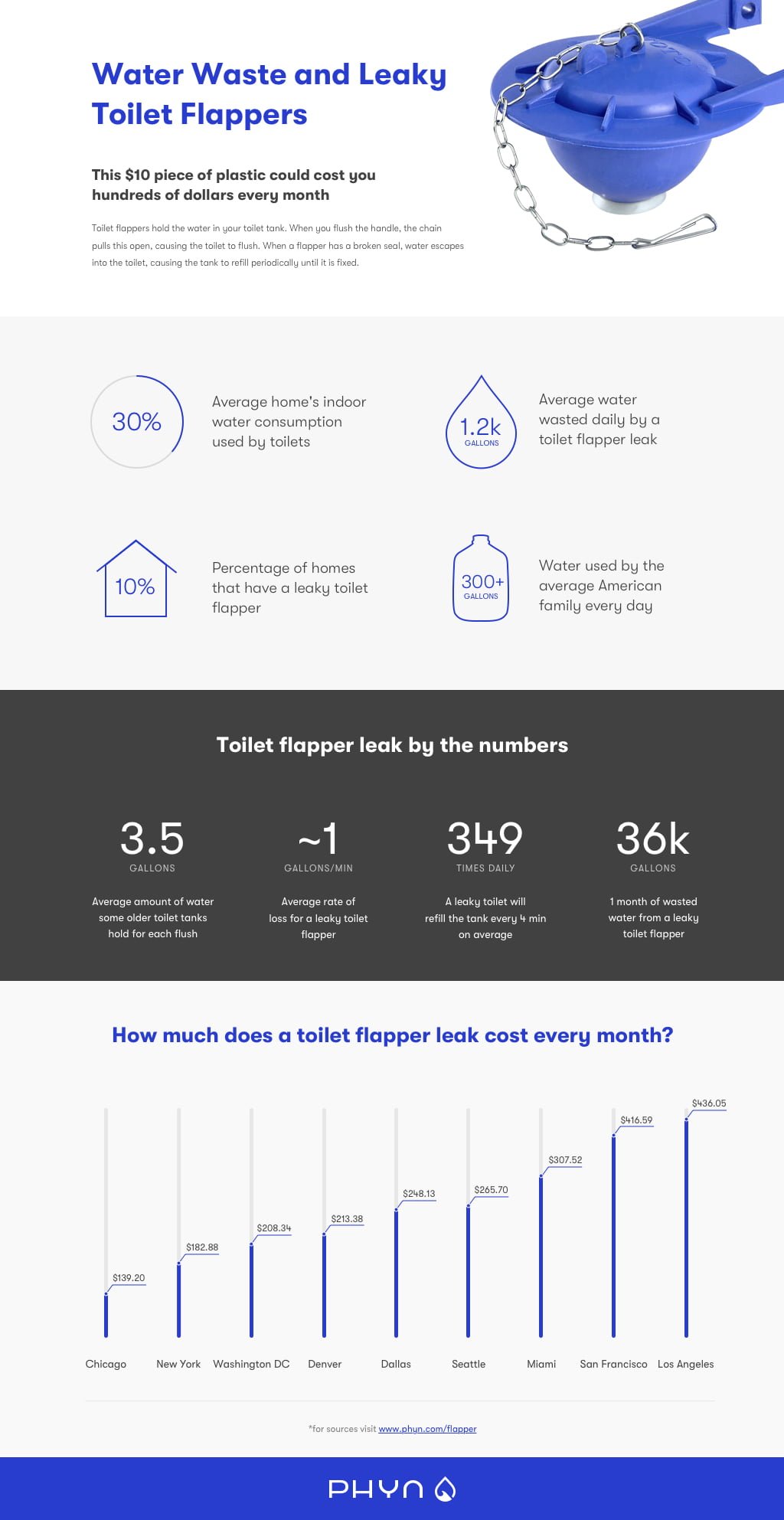In a new report coinciding with World Water Day and Fix a Leak Week taking place this week, the United Nations is projecting that five billion people could suffer water shortages by 2050 due to climate change, increased demand and polluted water supplies.
‘Fix a Leak Week’ is a program created by the Environmental Protection Agency (EPA) to raise awareness around household leaks, which can waste more than one trillion gallons of water annually nationwide. Households lose so much water to preventable leaks hidden behind walls and under sinks. A study by Michigan State University reveals that in just five years, nearly one third of the U.S. will lack affordable access to water if this trend continues.
With ‘Fix a Leak Week’ taking place, intelligent water industry leader Phyn is encouraging households to reduce water waste, mitigate leaks and save money by checking for toilet flapper leaks. Fixing a toilet leak is the ideal way to reduce household water use while also boosting water conservation.
In a national study, Phyn found that 10% of all homes had leaks resulting from a faulty toilet flapper (the mechanism that keeps the water in your toilet tank), which leaks nearly 1,200 gallons of water a day! When you flush the handle, the chain pulls this open, causing the toilet to flush. When a flapper is old or worn-out, water escapes into the toilet, causing the tank to refill periodically until it is fixed.
When left unresolved, toilet flapper leaks can waste approximately 36,000 gallons of water a month – that’s enough water for 940 loads of laundry! With water rates steadily increasing year-over-year, as well as some cities adopting tiered pricing approaches for high-water usage, a leaky toilet could add anywhere from $182 in New York, $248 in Dallas to more than $400 to your water bill every month in cities like LA and San Francisco.
Toilets are by far the main source of water use in the home, accounting for nearly 30% of an average home’s indoor water consumption. Replacing a $10 faulty toilet flapper is an easy DIY fix for homeowners to help conserve water and save money.
- Los Angeles – $436.05*
- San Francisco – $416.59*
- Miami – $307.52*
- Seattle – $265.70 (based on off-peak usage)
- Dallas – $248.13*
- Denver – $213.38*
- Washington D.C. – $208.34*
- New York – $182.88
- Chicago – $139.20
* Based on tiered pricing.





